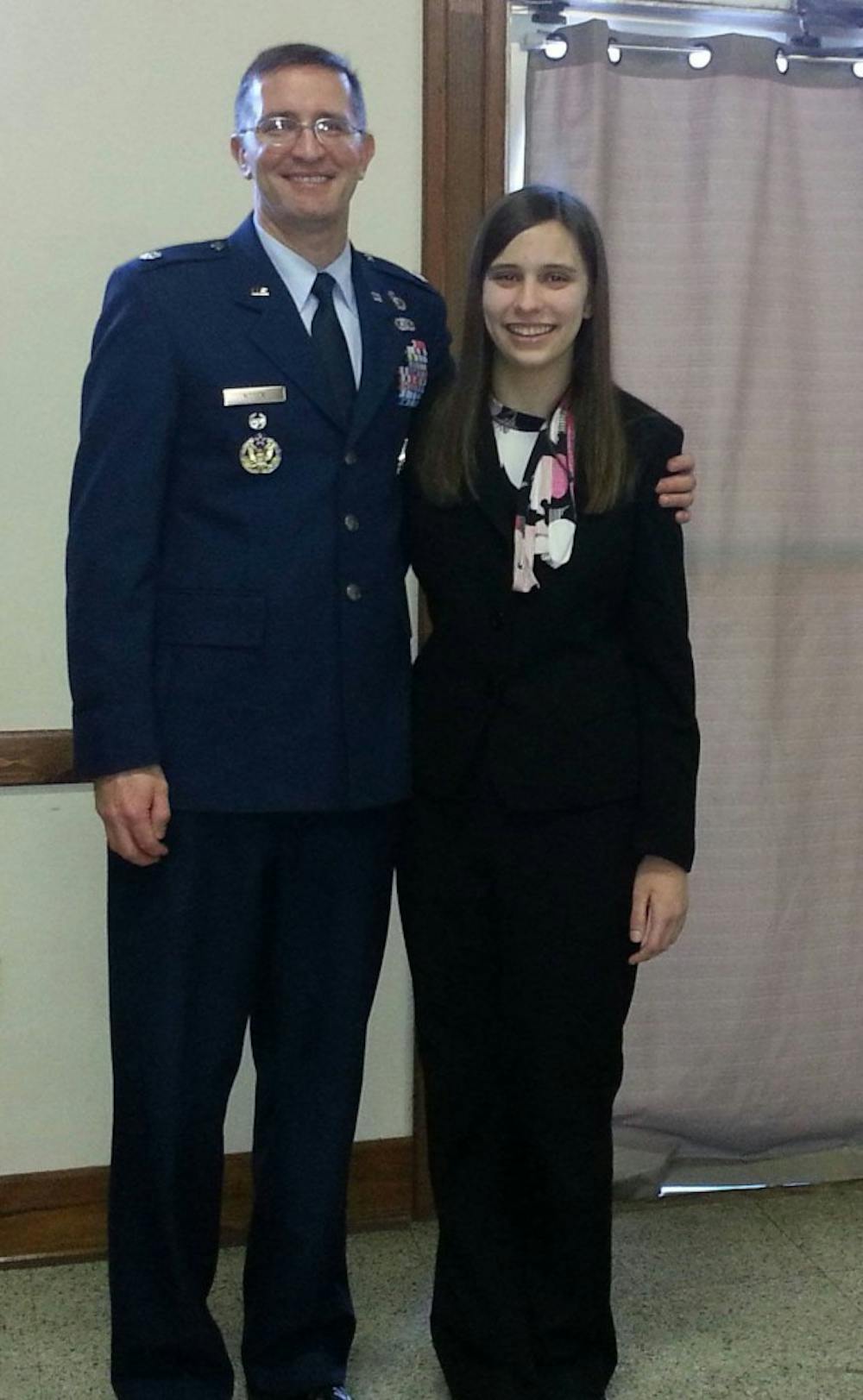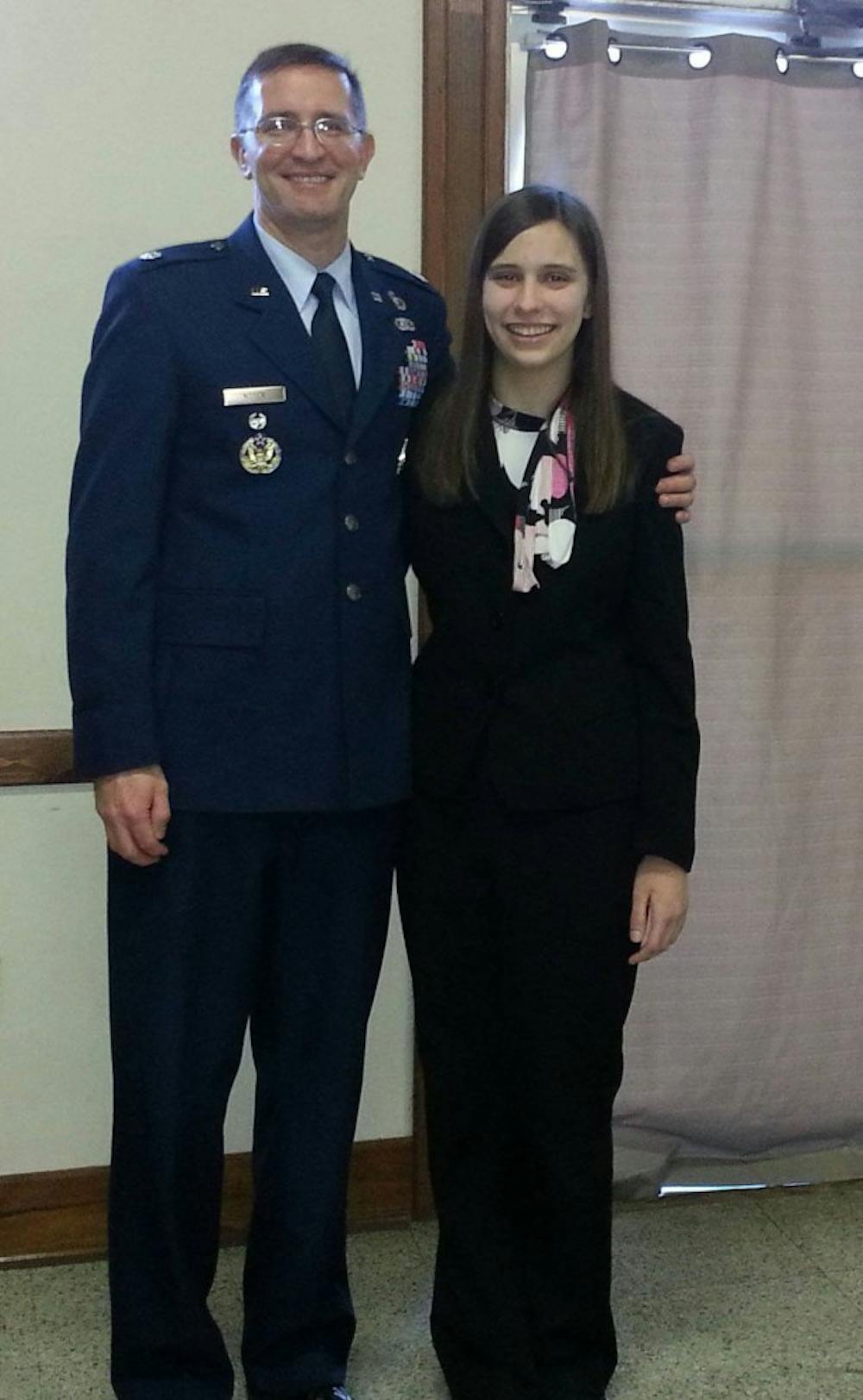By Julia Oller | Echo
When Nate Aeilts vacated campus one weekend each month during his first year and a half at Taylor, his journey was no casual road
The senior headed to Indianapolis to drill with a unit of the National Guard through January 2014 as part of his military duty, which also sent him to Afghanistan in 2010.
For his service, Aeilts receives $10,000-$12,000 per school year as part of the Post-9/11 GI Bill, a massive federally-funded program established in 2009 to provide education benefits to most military veterans. Those benefits can be passed on to spouses or dependents and include a stipend for textbooks and housing costs.
Taylor's participation in both the GI Bill Program and the Yellow Ribbon Program-which covers the remainder of tuition cost after the GI Bill has been applied-earned the school the No. 1 Best Colleges for Veterans ranking among Regional Midwest Colleges in the 2016 U.S. News and World Report.
Tim Nace, director of financial aid, was flattered by the distinction.
"I quite frankly was a little surprised simply because we don't have many veteran dependents and I'm not aware of any veterans themselves," he said. "We weren't necessarily doing anything special for veteran benefit students.
The top ranking does not factor in the number of veterans in the student body or how much money a college contributes to the program. A university's overall ranking, combined with its acceptance of the GI Bill and Yellow Ribbon Program, determines where it falls on the veteran-friendly spectrum.
Accommodating veterans and veteran dependents comes at little cost to Taylor. Through the Yellow Ribbon Program, the Veterans Administration will match the amount the college agrees to contribute to qualifying students.
Because 19 of the 20 students on the GI Bill last year earned academic scholarships, which qualify as Yellow Ribbon contributions, Taylor's out-of-pocket funding was minimal.
"We want to say thank you to our veterans and their dependents," Nace said. "(And) it wasn't going to cost us much extra."
Although the expense to Taylor is insignificant, the payoff to students capitalizing on the program is profound.
"When we were looking at colleges the only reason I could come to a Christian college or a private school was because we had that GI Bill," said junior Emily Nosek, whose father is in the Air Force. "Otherwise, we simply couldn't afford it, so it's been a huge blessing."
Like Nosek, most GI Bill participants at Taylor are children of veterans. The handful of service veterans, such as Aeilts, generally prefer to slip into civilian life.
Even though men on his floor called him Sarge last year, a reference to his Sergeant rank within the National Guard, the name is no longer a perfect fit.
"I always feel weird when people call me a veteran," he said. "I don't feel like a veteran."
Because Michaela Kosirog was on active duty in the National Guard during her time at Taylor, remaining under-the-radar was more difficult.
Every weekend she spent on duty meant no Internet access and hardly any time to do homework when she returned to campus on Sunday night.
"I was kind of an anomaly at Taylor," she said. "People would ask about events from my perspective (and) professors treated me a little different."





